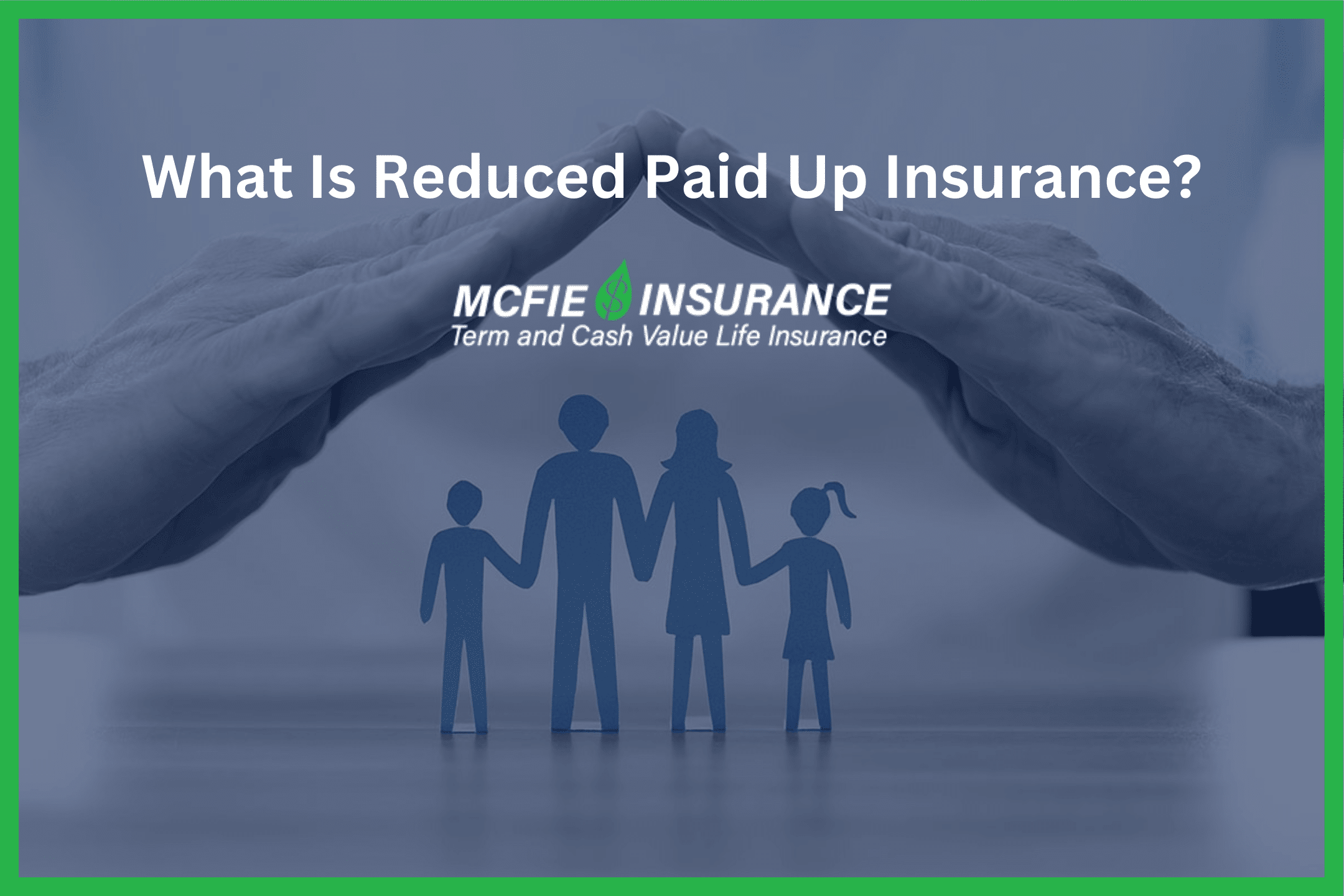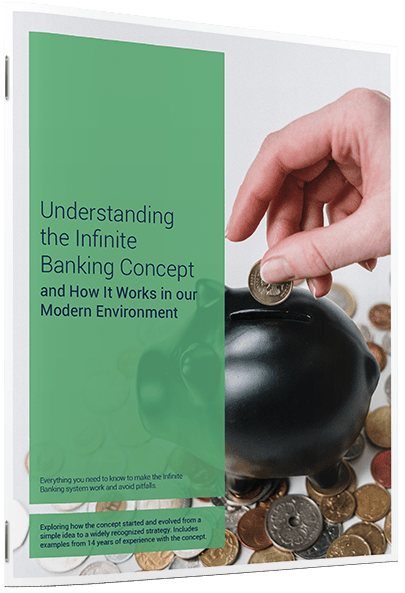702-660-7000
702-660-7000

Reduced paid up insurance is a nonforfeiture option that helps you end your premium payments and keep a reduced death benefit. While useful, this may not be the best option in all situations.
Reduced paid up insurance is a type of nonforfeiture option that allows whole-life insurance policyholders to cancel future premiums and keep a reduced death benefit.
 | Get a working knowledge of how each type of life insurance policy works. After reading this 10-page booklet you'll know more about life insurance than most insurance agents. Download here> |
Reduced paid up (RPU) insurance applies only to permanent whole life insurance policies. Upon exercising the RPU option a policy’s accrued cash value stays the same however, the death benefit is reduced.. Once a policy has been Reduce Paid-up (RPUed)it may continue to accrue cash value over time that you are able to use via policy loan similar to the original policy. The reduced death benefit coverage is calculated at the time of RPU to ensure no further premiums will be required to keep the policy in force for the rest of your life.
The benefits of reduced paid up insurance may vary from case to case. Generally, you should let your whole life insurance policy build cash value for at least 10-15 years before seriously considering this option.
If you encounter an unexpected life event that changes your cash flow, you may have better options before considering an RPU, because once a policy has been RPUed this action is permanent.
Sometimes it is desirable to stop premiums permanently. For example, as you head into retirement your income can decrease compared to when you were working. This may be a good time to evaluate your life insurance and consider whether to RPU certain policies. Sometimes RPUing an established policy can result in a more efficient Internal Rate of Return on future premiums to the cash value.
While reduced paid-up insurance does hold some benefits, there are also reasons to avoid exercising the reduced paid-up option and look for another solution.
The first and most obvious reason is that your beneficiaries will receive a reduced death benefit upon your passing. While moving forward with an RPU may help you take care of some financial hardships in the short term, it may also leave those same hardships to your family without the money to take care of them after you’re gone.
Reducing the amount beneficiaries receive may leave them in a precarious position without an easy way to take care of the problems left behind. Especially, if you leave behind young children or a spouse who is unable to work and relies on your income. The reduced benefit may not be enough to cover their needs.
Second, upon RPU some riders that existed on your policy before RPU will drop off. If there are any essential riders on your current policy, like guaranteed insurability, waiver of premium, or child/family protection, they will no longer apply to your reduced paid up insurance policy.
There are several alternative funding options as well as nonforfeiture options available to policyholders. Check with your McFie Insuranceteam to see what options may be available to you.
Alternative funding options include:
Alternative non-forfeiture options include:
This is an actual forfeiture of your policy rather than a non-forfeiture option. The cash value surrender option allows you to cash out the accrued cash value of your policy and cancel your policy. Unlike the RPU option, you do not get to keep a smaller version of your policy. This option is considered a last resort rather than a strategic option unless you have the life insurance coverage you need through other policies.

Understanding the Infinite Banking Concept and How It Works In Our Modern Environment 31-page eBook from McFie Insurance Order here>
Extended term insurance allows you to use the cash value accrued from your current policy to purchase a term life insurance policy with a death benefit equal to your original policy. This new term policy lasts as long as the accumulated cash value will fund the term insurance premiums and then the policy lapses.
An automatic premium loan provision allows the insurance company to pay the required premium with a loan against the accrued cash value of the policy for as long as possible. Repaying the loan at a future date allows the policy owner to restore the policy according to the original design. Any outstanding policy loan would simply be deducted from the death benefit before being sent to beneficiaries in the event the loan is not repaid and the insured dies. This option can be a good fit if you anticipate you will be able to resume the premium payments again soon and catch up on loan repayments too. This is a good default non-forfeiture option.
When done at the right time and for the right reasons, a reduced paid up insurance policy can be a logical and financially-beneficial strategy. Like any life insurance decision, there are pros and cons to consider before making your decision.
Paid-up additions in life insurance refer to optional extra payments made on a whole life policy to boost the death benefit amount. These are distinct from the reduced paid-up option, which is a standard feature of whole life policies. Paid-up additions only apply if the policyholder has bought the specific “paid-up” rider. However, not all insurance providers offer this rider, so it’s crucial to ask about its availability when applying for a policy.
If you’re approaching a point where you no longer want to make your premium payments, you may be able to use a reduced paid up insurance option to avoid surrendering your policy while keeping some of the death benefits and cash value accumulations in your policy.
Whatever your questions are, you don’t have to manage your life insurance plan on your own. Our team here at McFie Insuranceis trained and ready to help you understand your options, answer your questions, and ultimately provide greater peace of mind.
Schedule a strategy session with a McFie Insuranceexpert today to get the information & support you need.
 by John T. McFie
by John T. McFie
I am a licensed life insurance agent, and co-host of the Wealth Talks podcast.
At age 14 I started developing spreadsheet models and software systems to help my Dad share financial concepts with clients.
Skipped college at 17 recognizing the overinflated value and prices of most college degrees and built more financial software instead (see MoneyTools.net). Still a strong advocate of higher education without going to college. I enjoy making financial strategies clear and working through the numbers to prove results you can count upon.